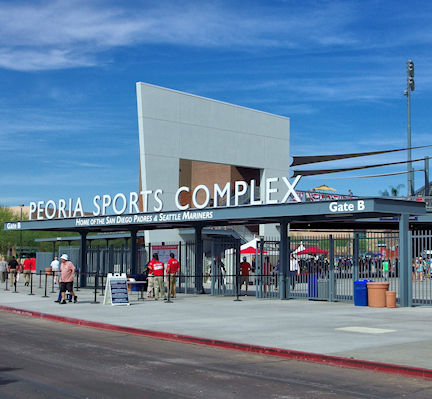After a year of acrimony and delays, the Eastern League’s Hartford Yard Goats moved into their new home Thursday. Dunkin’ Donuts Park is on the northern edge of the city’s downtown, and should be the catalyst of further development in this blighted neighborhood.
We were there to chronicle the first game (if you follow us on Twitter, you’ll always get to see photos from the games we attend), and we will provide you with an extensive review and dozens of pictures shortly. Be watching for it.
Minor League President Pat O’Conner was at the debut, and he was kind enough to sit down with me for an interview. While you’ll learn much more of what he had to say in our upcoming review, he made one comment that bears repeating here. “Remember the old adage: Good things come to those who wait. I think Hartford is going to get good things.”
Indeed, there is an enormous amount to like about this ballpark. We’re anxious to tell you the whole story about those “good things.”

 Presenting with me will be noted sports architect Jonathan Cole of Pendulum Studio (see photo). We’ll be showing a slide show on the current state of ballpark design. Any baseball fan will enjoy this show!
Presenting with me will be noted sports architect Jonathan Cole of Pendulum Studio (see photo). We’ll be showing a slide show on the current state of ballpark design. Any baseball fan will enjoy this show! During my trip to Florida to write about the new Ballpark of the Palm Beaches (see our in-depth review of it
During my trip to Florida to write about the new Ballpark of the Palm Beaches (see our in-depth review of it 

